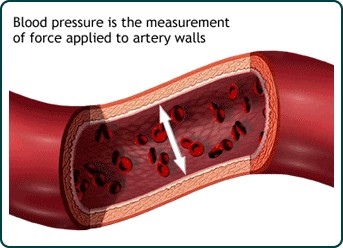Chapter 14: Diet and Health
14.3 Diet and High Blood Pressure
High Blood Pressure

Blood pressure is the force of blood pushing against the walls of your arteries, which carry blood from your heart to other parts of your body, and back to the heart. Blood pressure normally rises and falls throughout the day. But if it stays high for a long time, it can damage your heart and lead to health problems.
High blood pressure is a common and dangerous condition, putting you at risk for heart disease and stroke, two of the leading causes of death in in the United States.1
About 1 of every 3 American adults—or about 75 million people—have high blood pressure. Only about half (54%) of these people have their high blood pressure under control.1
High blood pressure is called the “silent killer” because it often has no warning signs or symptoms, and many people do not know they have it. That’s why it is important to check your blood pressure regularly.
The good news is that you can take steps to prevent high blood pressure or to control it if your blood pressure is already high.
Preventing High Blood Pressure
By living a healthy lifestyle, you can help keep your blood pressure in a healthy range and lower your risk for heart disease and stroke. A healthy lifestyle includes:
- Eating a healthy diet.
- Maintaining a healthy weight.
- Getting enough physical activity.
- Not smoking.
- Limiting alcohol use.
The Dietary Approaches to Stop Hypertension (DASH) diet was developed specifically for patients with hypertension. You can learn more about this diet in section 13.9 or at the link below.
References
- National Center for Chronic Disease Prevention and Health Promotion, Division for Heart Disease and Stroke Prevention
Hypertension is the scientific term for high blood pressure and defined as a sustained blood pressure of 140/90 mmHg or greater. Hypertension is a risk factor for cardiovascular disease, and reducing blood pressure has been found to decrease the risk of dying from a heart attack or stroke.

